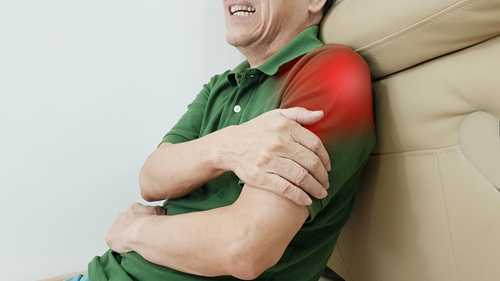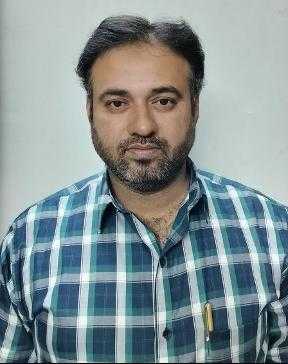
rotator cuff injury
Expert Physiotherapy at Home
Personalised Recovery Programmes
Trusted Physiotherapists. Real Results.
Patient Testimonials
Our Medical Team
Meet some of our experienced and dedicated healthcare professionals
Dr. Lokesh G
15 Years Experience
SPECIALIZATIONS
Experienced in Neurological rehabilitation, Orthopaedic physiotherapy, and Paediatric care
Delivers structured, high-impact treatment plans across neuro, ortho, and paediatrics—ensuring safety, comfort, and measurable recovery at every stage.
Dr. Mohammed Sarwar
15 Years Experience
SPECIALIZATIONS
Experienced in Neurological rehabilitation, Adult physiotherapy, and Paediatric care
Combines deep clinical expertise with a compassionate approach, supporting both adults and children through neuro and physical rehabilitation that promotes long-term independence and recovery.
Dr. Nelapati Divya
12 Years Experience
SPECIALIZATIONS
Skilled in Orthopaedic rehabilitation, Manual therapy techniques, and Paediatric physiotherapy
Brings a personalised, hands-on approach to healing—combining structural expertise with paediatric sensitivity to restore movement, relieve pain, and improve everyday function.
Dr. Naveen V
3 Years Experience
SPECIALIZATIONS
Trained in Pain management, Cardiac and Orthopaedic rehabilitation, Neurological care, and Neural tissue mobilisation
Brings clinical precision and empathy together—designing science-backed recovery protocols for pain relief, nerve mobilisation, and cardio-neuro-ortho rehabilitation across all age groups
Dr. Miloni Savla
2 Years Experience
SPECIALIZATIONS
Holds an MPT in Orthopaedics with a focus on Musculoskeletal rehabilitation and strength recovery
Delivers focused, movement-oriented therapy grounded in orthopaedic science—helping patients rebuild strength, restore function, and return to daily life with confidence

rotator cuff injury: causes, symptoms, and rehabilitation
The rotator cuff is a crucial group of muscles and tendons surrounding the shoulder joint, ensuring stability and allowing smooth movement. A rotator cuff injury can range from mild inflammation to complete tendon tears, often leading to pain, restricted mobility, and weakness in the shoulder. This condition is common among athletes, individuals engaged in repetitive overhead motions, and older adults experiencing age-related degeneration. Proper rehabilitation is essential to restore function and prevent long-term complications.
understanding rotator cuff injury
A rotator cuff injury occurs when one or more of the tendons in the shoulder become inflamed, partially torn, or completely ruptured. These injuries often develop gradually due to overuse but can also result from sudden trauma. When left untreated, a rotator cuff injury can severely impact daily activities such as lifting objects, reaching overhead, or even dressing.
common causes of rotator cuff injuries
Several factors contribute to rotator cuff injuries, including:
- Repetitive Motion: Activities that involve continuous overhead movements, such as swimming, tennis, painting, or weightlifting, increase the risk of strain and wear.
- Ageing and Degeneration: Natural wear and tear over time make the tendons more prone to tears, particularly in individuals over 40.
- Trauma: A sudden fall, direct impact, or lifting of a heavy object suddenly can cause acute rotator cuff injuries.
- Poor Posture: Slouched or improper shoulder positioning can place undue stress on the rotator cuff, leading to gradual damage.
- Lack of Shoulder Strength and Flexibility: Weak or imbalanced shoulder muscles contribute to instability and strain on the tendons.
symptoms and complications
The severity of symptoms depends on the extent of the injury, but common signs include:
- Persistent Shoulder Pain: Pain that worsens with movement, especially overhead activities or while sleeping on the affected side.
- Weakness in the Shoulder: Difficulty lifting or rotating the arm due to impaired tendon function.
- Clicking or Cracking Sensation: A feeling of grinding or popping when moving the arm may indicate tendon irritation or damage.
- Limited Range of Motion: Stiffness and difficulty in reaching behind the back or overhead.
- Swelling and Inflammation: Visible swelling or tenderness around the shoulder joint.
If left untreated, a rotator cuff injury can lead to chronic shoulder instability, loss of strength, and an increased risk of arthritis due to joint degeneration.
prevention and management
Preventing rotator cuff injuries involves adopting measures to reduce strain and maintain shoulder health. Some essential preventive strategies include:
- Regular Strengthening Exercises: Strengthening the shoulder muscles, particularly the rotator cuff and surrounding stabilisers, helps support the joint.
- Proper Posture and Ergonomics: Maintaining an upright posture and using proper lifting techniques minimise shoulder stress.
- Stretching and Warm-Up Routines: Performing flexibility exercises and warming up before physical activities reduces the risk of strain.
- Avoiding Overuse: Taking breaks during repetitive activities and modifying exercise routines can prevent excessive wear.
- Early Medical Attention: Seeking treatment at the first sign of pain or discomfort helps prevent further damage and promotes faster recovery.
rehabilitation and physiotherapy
Physiotherapy is a cornerstone in managing rotator cuff injuries, offering tailored treatment plans to restore strength, flexibility, and function. Rehabilitation typically includes:
- Pain Management Techniques: Modalities such as ice therapy, heat application, ultrasound, and electrical stimulation help alleviate pain and inflammation.
- Gentle Mobility Exercises: Controlled shoulder movements improve flexibility and prevent stiffness.
- Strengthening Programs: Targeted exercises focus on enhancing rotator cuff muscles and stabilising the shoulder joint.
- Manual Therapy: Hands-on techniques, including massage and joint mobilisation, help relieve tension and promote healing.
- Postural Correction: Teaching proper body mechanics and posture adjustments to reduce strain on the shoulder.
- Gradual Return to Activity: A structured approach to reintroducing normal movement and sports participation while minimising re-injury risk.
how portea supports rotator cuff rehabilitation
At Portea, we provide expert home-based physiotherapy services tailored to individuals recovering from rotator cuff injuries. Our experienced physiotherapists create customised rehabilitation programs focused on restoring mobility, strengthening the shoulder, and preventing future injuries—all in the comfort of your home.
We also specialize in providing expert physiotherapy services for post-surgical rehab, arthritis, neuro-rehab, sports injuries, orthopedic physiotherapy, physiotherapy for the elderly, respiratory physiotherapy, and more—all delivered conveniently at your home. Our dedicated team ensures you receive the personalized care required for a smooth and successful recovery.
portea’s other physiotherapy services for various medical conditions
faqs on rotator cuff injury
1.How long does it take for a rotator cuff injury to heal?
Healing time varies based on severity. Mild strains take a few weeks, while partial tears may need months. Severe tears might require surgery and rehabilitation, taking six months to a year for full recovery.
2.How to tell if a rotator cuff is torn or strained?
A strain causes mild pain and limited motion, while a tear leads to sharp pain, weakness, and difficulty lifting the arm. A clicking sensation or nighttime pain may indicate a tear. Imaging tests confirm the diagnosis.
3.How to fix a rotator cuff injury?
Treatment includes rest, physical therapy, anti-inflammatory medications, and strengthening exercises. Severe tears may require corticosteroid injections or surgery. Rehabilitation focuses on restoring shoulder strength and mobility while preventing further damage.
4.Does the rotator cuff heal on its own?
Minor strains may heal with rest and rehabilitation, but complete tears often do not heal independently. Without treatment, a tear can worsen, leading to chronic pain, stiffness, and decreased shoulder function over time.
5.When should I see a doctor for a rotator cuff injury?
Consult a doctor if shoulder pain persists, worsens at night, or limits movement. Seek immediate care if weakness, swelling, or a popping sensation occurs, as untreated injuries can lead to long-term stiffness, weakness, or chronic shoulder instability.
6.Can you lift weights with a rotator cuff injury?
Lifting weights with a rotator cuff injury can worsen the condition. Rest and rehabilitation are crucial. Once healed, start with light resistance exercises under a physical therapist’s guidance to strengthen the shoulder without causing further damage.
Doctor Consultation
Nursing
Physiotherapy
Trained Attendant
Elder Care
Mother & Baby Care
Lab Tests
Medical Equipment
Speciality Pharma
Critical Care











